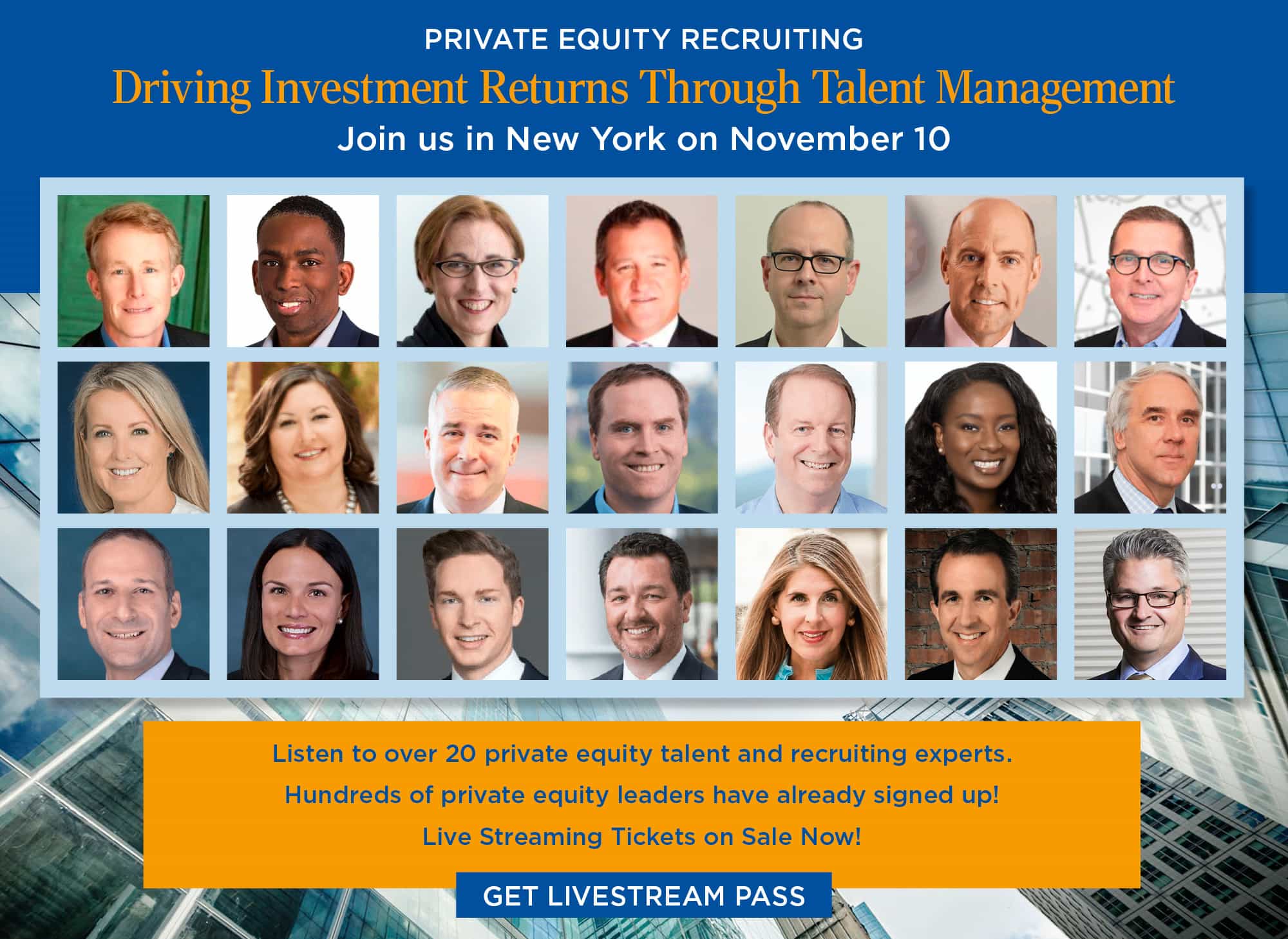10 Penetrating Questions to Ask Your Search Firm

July 17, 2020 – How do you size up an executive search firm’s true capabilities? In the age of COVID-19 it is an important consideration. To get you started, Odgers Berndtson has offered up 10 questions to help judge if you have the right recruiter on your side or if it’s time to start a search of your own. Let’s go inside this recent Q&A to find out more.
1. What is your reputation in the market? How would clients and candidates describe your approach and conduct? “Leading executive search firms have a strong name and reputation that really helps in acquiring and securing candidates,” said Michaël Mellink, senior partner in Odgers Berndtson’s Amsterdam office and head of its life sciences practice. “Market knowledge and a strong network of contacts are advantageous in securing the best candidates – with an excellent network among board members [being] very valuable for the more senior positions.”
2. What would an unsuccessful candidate say about their experience with the search firm? Would they be happy to be approached by you again? “We ask ourselves this question at the end of every search,” said Maneesh Ajmani, regional director EMEA at Horton International.

“Since we interact with senior executives for most of our searches, we believe each candidate is a potential client and deserves to be engaged in the same way, with the same level of attention and respect as our client. Our internal KPIs also capture feedback from the experience of candidates who went through the selection process with us. For us, every search is an opportunity to build successful and lasting relationships and we are always looking for happy clients.”
3. How international is the firm?In which cities/territories does the recruiter have a presence and how consistent is its service across borders? Bernd Prasuhn, managing partner and chairman of the global board at Ward Howell, which has 33 global offices, said that all relevant executive search firms with multiple offices who have been around for more than 20 years should have no need to prove that they have the capabilities to conduct executive search projects.

“Sizing up a search firm boils down to sizing up the search consultant,” Mr. Prasuhn said simply. To deliver top notch results the match between the consultant and the client is paramount, he said. “The match should cover seniority, international outlook, industry knowledge, understanding of functional requirements and understanding of the business case/strategy of the client organization.”
4. What are your specialist areas, including functional role expertise? Elizabeth Dahill, of The Dahill Group in Denver, CO, said: “A search firm that specializes in your industry offers the knowledge and market intelligence to have access to talent through their relationships, connections and a thorough understanding of many industries and their challenges.”

“Of course there are other factors to consider that include when selecting a search firm such as years of experience, references; both client and candidate, and placement success. The right firm will have have built a trusted reputation as an industry insider. Your search firm should be a consultative partner that clearly understands your operational challenges and be fully competent to represent you in the marketplace vying for top talent,” she said.
5. Can you explain your pricing structure?Pricing is always a sensitive issue and relationships work best when there is transparency over costs/budgets on both sides. “The transitioning fee model is the fastest changing trend in recruiting and it highlights the importance of flexibility as we build long-lasting business relationships with our clients,” said Robin Levitt, president of Encino, CA-based 4D Executive Search. “Flexibility has always been one of the most effective cornerstones of my practice. It’s the one thing that has allowed me to build client partnerships that span decades.”

“Today, our clients’ changing needs and non-traditional business structures have made catering to their specific preferences absolutely necessary to thrive in our industry,” he said. “To stay flexible, we currently offer contract, contract-to-hire, retained, partial-retained and hourly search solutions. There’s a gaping hole in the market for this.”
6. What is the firm’s success rate with candidates?Not just with placing them, but also with respect to how long they stay in the role. “Considering the investment a company makes when hiring an executive search partner, it is critical to ask the right questions to ensure they maximize their return,” said Jonathan Sarn, partner at Kinsley Sarn. “We suggest two additional questions: First: ‘How are candidates evaluated and ‘fit’ determined?’ A search partner must invest significant time researching and understanding all aspects of your values and culture, the needs and wants for the position, and the key traits of high potential employees within the company. This includes on-site visits, discussions with stakeholders, and interviews with key leaders. Second, ‘What, if any, support do you include after hire to ensure fit?’”

“At Kinsley Sarn, our process includes a three-step assimilation program that ensures the placed leader understands their key deliverables, transitions effectively into the company and culture and receives 360 feedback during their first year,” he said. “These two questions, plus making sure that the partner who is selling you the search is also the one assessing and delivering your candidates, deliver immediate value and long-term success.”
7. What is your process for qualifying candidates? “The ultimate “product” of search firms are fully qualified candidates,” said Gary Erickson, managing partner of Executive Search Partners in Sarasota, FL. “Here are the questions we would ask of a potential search partner: What experience do you have in recruiting candidates for this type of position? What experience do you have in our industry? What steps do you take to fully understand our requirements? What is your interview process?”

“When potential clients ask us these questions we tell them that Executive Search Partners is an IT focused search company founded and run by ex-CIO’s,” Mr. Erickson said. “We use our extensive IT experience to help our clients fully develop their requirements. We then create a customized profile of our client’s ideal candidate and use this profile when we interview each candidate. Our IT experience enables us to fully explore a candidate’s IT background. And our clients like the results. We have been recognized by Forbes as one of the top recruiting companies in North American three times including 2020.”
8. What does the firm do to address diversity and inclusion? Check they have consistently delivered diverse shortlists. “Now is the time to make public what we have been driving as a firm globally,” said Krishnan Rajagopalan, president and CEO Heidrick & Struggles, in a recent edition of Executive Search Review dedicated to diversity and inclusion. 
“Today, we are making a pledge to our clients, candidates and employees: We commit that a minimum of half of the initial board candidates presented to clients globally on an annual basis will be diverse. Our firm is committed to fostering a talent landscape as diverse as the world we live in to better serve our clients and represent our employees.”
9. Are there any conflicts of interest or off-limits?Off-limits, of course, is an arrangement a search firm has with an organization in which it agrees not to approach any of that organization’s employees. “I regard it as crucial for a client to know who actually does the hands-on work,” explained Sabine Morant of Morant Executive Search in Switzerland. “Meaning the sourcing and approaching of potential candidates. Often the person who acquires a mandate is not the one who executes a search. Creating a need in passive candidates is key.”

“One condition is to fully understand and sell client’s needs in order to attract them and judge on the fit. I often get the feedback that seniority, knowledge and professionalism is what gained their trust and openness to talk,” Ms. Morant said. “The benefit of a small boutique firm is the seamless process and information flow. The one who is getting briefed is also approaching and interviewing the potential candidates. To read between the lines and transfer what clients and candidates really need is key to success.”
10. What is the search firm’s audit feedback like? A good way of finding out if the search firm audits processes and performance at the conclusion of assignments, including candidate experience. Joanna Miller of Miller Black Associates said that “in selecting a search firm, be sure to ask two related questions: Who exactly is going to be responsible for the search, and what is that consultant’s work load? Many firms promote their team approach, which can lead to fuzzy accountability, and can be a smokescreen to hide the fact that it is actually the most junior member of the team who will be leading the search,” she said. “Especially in times of robust executive hiring, the consultant leading the search can be handling as many as 10 or more searches.”

“If you do the math, that doesn’t leave many hours in the week to focus on each client’s search,” she said. “Similarly, if the firm brings a domain expert to the pitch, be sure to probe on exactly what that expert’s role will be in the execution of the search. Some firms are not set up to incent their domain experts to play a major role in a search brought in by another consultant. This is true as well for searches requiring collaboration among multiple offices. Make sure there is engagement and commitment from the players you need for the search to succeed.”
“These items outlined by Odgers Berndtson articulate well the starting point to qualify and evaluate a search partner,” said Heather Eddy, president and CEO of executive search and non-profit consulting firm KEES (Kistner Eddy Executive Services).

“Additionally, in sizing up the true capabilities of potential search partners, you also want to check the ‘fit’ and not just the ‘skill’ (similar to when you evaluate candidates). Does the search firm really know your business purpose and mission? Do they have a similar lived experience with similar clients? Do they understand your organizational culture, thereby accurately conveying that to the applicants and qualified candidates?”
“In the short run, if they treat you like a partner versus a client, you should know you’ve made the right choice,” Ms. Eddy said.
“Choosing a search firm is more about the individuals or team that will be assigned to the effort versus a particular brand,” said Matt Hamlin, managing director at PierceGray in Chicago. “Because executive search includes a hyper-personal element to the service, we recommend personally assessing the team that will be assigned to your search, and understanding the background/credentials of those individuals who will be managing your day-to-day search process and evaluating candidates. After establishing a relationship with the team, you will build trust throughout the course of the project, hopefully establishing a long-term relationship.”

Mr. Hamlin said that “when interviewing search professionals, consider confirming the following items: Specific experience in relevant functions, role-levels, and company sizes. Consider the providers’ search experience as well as other relevant chapters of their career. Also, consider the business case for your role – for example, are you looking to create a new function or lead a transformation? Look for a search provider that has supported similar business goals. Ask the search professional to provide a proposed strategy for the role. How would they approach the market? And lastly understand the full team structure that will be supporting the work. You want to see a team that provides both horsepower and real functional experience.”
Related: 10 Tips for Networking with Executive Recruiters During COVID-19
Contributed by Scott A. Scanlon, Editor-in-Chief; Dale M. Zupsansky, Managing Editor; Stephen Sawicki, Managing Editor; and Erik Boender, Senior Research Editor – Hunt Scanlon Media












